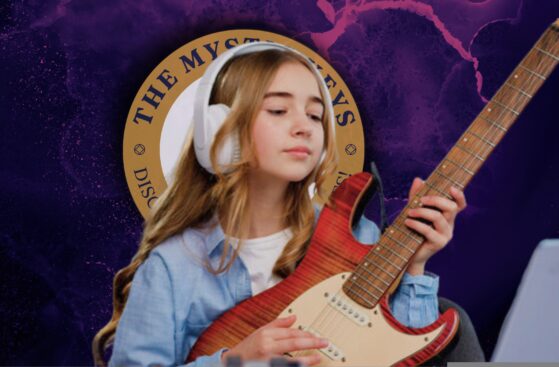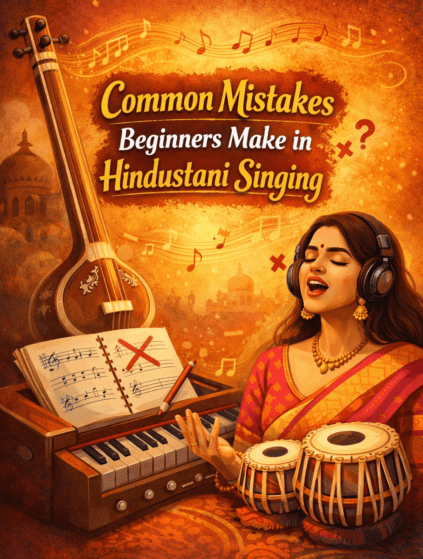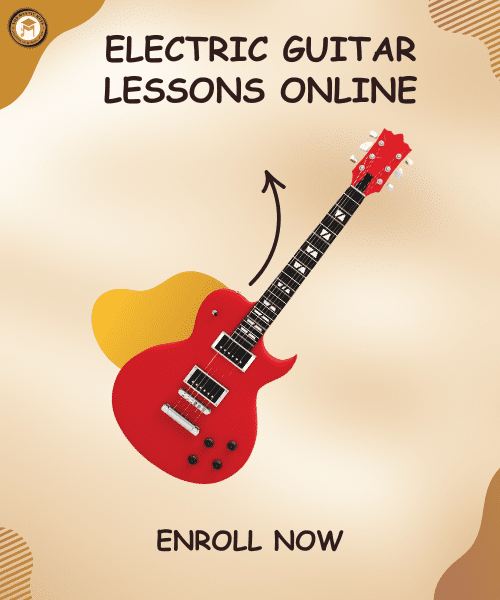Best Genres to Learn Guitar as a Beginner | A Complete Guide
When you’re just starting out on the guitar, one of the first—and most important—questions you’ll face is: What are the best genres to learn guitar that will help me grow, build skills, and stay motivated? This can feel both exciting and overwhelming because the genre you choose not only shapes your practice routine but also influences how quickly you progress and how much you enjoy playing.
The beauty of the guitar lies in its incredible versatility. It effortlessly moves from soft, melodic ballads to powerful, electrifying solos, spanning countless musical styles. With so many options to explore, it’s natural to wonder where to begin and which genres will set you up for success.
That’s why in this blog, we’ll take you step-by-step through some of the best genres to learn guitar for beginners. We’ll highlight styles that are not only musically rewarding but also accessible enough to build your foundation and keep your enthusiasm alive as you embark on this musical journey.

Pop – Simple, Catchy, and Universally Loved
Let’s start with pop music, the genre that most people already know and love. Pop is a fantastic entry point for beginners because of its simplicity and familiarity. The songs often feature repetitive chord progressions, uncomplicated rhythms, and predictable structures. Even better—you’re likely already singing along to many of these tracks in your head.
As a beginner, this familiarity reduces the learning curve significantly. You’ll be able to focus on finger placement and timing without getting overwhelmed by technicality.
What You’ll Learn:
Mastering basic open chords (like G, C, D, Am, Em)
Playing common chord progressions (like I–V–vi–IV)
Developing strumming consistency
Playing along with your favorite artists
Great Starter Songs:
“Perfect” – Ed Sheeran
“Let It Be” – The Beatles
“Someone Like You” – Adele
From singalong sessions to solo practice, pop music gives beginners a soft landing into the world of guitar.

Rock – Power-Packed and Instantly Gratifying
Once you’ve got a few chords under your belt and have built some confidence in changing between them, rock music naturally becomes the perfect next genre to dive into. Because it’s rooted deeply in raw energy, emotional expression, and a rebellious spirit, rock offers guitarists an exhilarating way to channel passion through powerful riffs and driving rhythms—even at the early stages of learning. What makes rock especially appealing is that many classic rock songs revolve around power chords and repetitive riffs, which not only simplify the learning process but also provide an immediate sense of accomplishment and excitement. As you progress further, these songs serve as a gateway to fundamental lead guitar techniques, introducing elements like basic solos and bends in a gradual, non-intimidating manner. This layered approach ensures that your skills develop steadily while keeping your motivation high and your playing dynamic.
What You’ll Learn:
Power chords and palm muting techniques
Playing simple lead guitar riffs
Using distortion and amp settings
Rock-solid timing and rhythmic control
Rock Anthems for Starters:
“Smoke on the Water” – Deep Purple
“Seven Nation Army” – The White Stripes
“Sunshine of Your Love” – Cream
Learning rock guitar gives you a deep sense of confidence and satisfaction early in your journey. The gratification of playing even a simple riff can be a powerful motivator.

Blues – A Soulful Foundation for Technique and Feel
If you want to develop a strong emotional connection to your playing, blues is definitely the genre to explore. While it may initially sound sophisticated and complex, blues actually offers one of the most structured and beginner-friendly learning paths available. To begin with, the genre’s backbone—the 12-bar blues progression—is straightforward and easy to grasp, making it an excellent foundation for new guitarists. As you become comfortable with this progression, it naturally guides you into mastering important aspects like rhythm and basic improvisation. Furthermore, blues gradually introduces expressive techniques such as string bending, slides, and vibrato, which not only enhance your playing but also serve as essential building blocks for more advanced styles across many genres. In this way, blues seamlessly combines emotional depth with technical growth, making it an ideal starting point for those who want both feeling and skill in their guitar journey.
What You’ll Learn:
12-bar blues patterns and shuffles
Minor and major pentatonic scales
Call-and-response phrasing
Basic improvisation and soloing
Blues Tracks to Try:
“Before You Accuse Me” – Eric Clapton
“Sweet Home Chicago” – Robert Johnson
“I’m Tore Down” – Freddie King
Blues connects technique with feel. As you learn to play it, you’ll develop your musical ear and phrasing—essential traits for any serious guitarist.

Country – Clean, Rhythmic, and Great for Coordination
Often underestimated, country music truly offers a treasure trove of benefits for beginner guitarists. To begin with, many classic country songs are built around just three or four chords, making them perfect for practicing smooth chord transitions, steady rhythm, and foundational fingerpicking techniques. Beyond its simplicity, country music shines in its storytelling aspect, which deeply helps players connect emotionally with the songs they play. Whether you’re strumming chords or exploring fingerpicking patterns, country music consistently reinforces the importance of musical clarity and precise timing, making it an excellent genre for developing well-rounded guitar skills.
What You’ll Learn:
Chord clarity and clean transitions
Bass-strum and alternate picking patterns
Simple lead fills and licks
Fingerstyle foundations
Country Staples:
“Ring of Fire” – Johnny Cash
“Take Me Home, Country Roads” – John Denver
“Jolene” – Dolly Parton
Country music may seem humble, but it’s a powerful genre for building solid technique, especially for acoustic players.

Folk – Introspective, Acoustic, and Emotionally Rich
If you’re drawn to the acoustic guitar’s warm and honest sound, then folk music might just be the perfect genre for you. Known for its rich storytelling tradition and intimate style, folk music places greater emphasis on emotional substance rather than technical complexity. This makes it an ideal choice for beginners who want to express themselves musically without being overwhelmed by difficult techniques.
Moreover, folk often incorporates fingerpicking patterns or simple strumming, which gently introduces you to essential skills. Through this, you not only learn how to accompany your own vocals but also develop the ability to collaborate seamlessly with other musicians. In this way, folk music nurtures both personal expression and communal creativity, making your guitar journey both rewarding and enjoyable.
What You’ll Learn:
Fingerpicking patterns (like Travis picking)
Story-driven song structure
Use of capos and alternate tunings
Playing with emotion and simplicity
Folk Favorites:
“Blowin’ in the Wind” – Bob Dylan
“Fast Car” – Tracy Chapman
“The A Team” – Ed Sheeran
Exploring folk will deepen your understanding of melody and lyrics—and it gives beginners a chance to connect more personally with their instrument.

Reggae – Relaxed Rhythms and Feel-Based Learning
For those who enjoy a laid-back groove, reggae stands out as one of the best genres to learn guitar. While reggae songs often rely on simple chord shapes, what truly distinguishes this style is its unique rhythm. The signature offbeat strumming pattern, known as the “skank” rhythm, encourages players to sharpen their timing and internal sense of groove. This makes reggae not only enjoyable but also highly effective for developing a strong rhythmic feel.
Moreover, reggae’s relaxed, repetitive progressions and minimalistic accompaniment make it especially suitable for beginners who want to focus on rhythm without feeling overwhelmed by complex chord changes or fast-paced playing.
What You’ll Learn:
Offbeat rhythm patterns
Left-hand muting techniques
Syncopation and groove control
Smooth chord transitions
Reggae Tracks to Explore:
“Three Little Birds” – Bob Marley
“Sweat” – Inner Circle
“No Woman No Cry” – Bob Marley & The Wailers
Reggae helps cultivate a sense of musical feel early in your development, which pays off across all genres later on.

Worship – Heartfelt Simplicity and Spiritual Connection
Many beginner guitarists find their footing through worship music, especially within community or church settings, which makes it one of the best genres to learn guitar for those starting out. Worship songs often revolve around just a few repeating chords, making them both accessible and emotionally powerful. Moreover, the focus in worship music extends beyond technical skill to creating a meaningful space for spiritual and emotional connection. Because of this unique blend of simplicity and depth, worship music becomes a rewarding genre for beginners who wish to serve through music or simply find peace and purpose in their practice.
What You’ll Learn:
Chord progressions used in worship (I–V–vi–IV)
Playing with a capo to transpose
Leading or accompanying vocals
Dynamic playing and emotional pacing
Popular Worship Songs:
“10,000 Reasons” – Matt Redman
“Oceans” – Hillsong UNITED
“Way Maker” – Sinach
Learning worship music not only builds musical skills—it also offers a deeply fulfilling way to express faith and connect with others.

Final Thoughts | Let Your Genre Guide Your Growth
Every genre offers something unique and valuable to the beginner guitarist’s journey. While some styles focus heavily on groove and rhythm, others emphasize emotion, melody, or technical finesse. When considering the Best Genres to Learn Guitar, it’s essential to start with those that truly speak to your personal taste and musical instincts. After all, the genre that resonates with you will motivate you to practice more regularly, and consistent practice is the key foundation for meaningful progress.
At the same time, it’s important to remember that your musical exploration doesn’t have to be limited to a single genre. In fact, many skilled guitarists began by experimenting across multiple styles, discovering new techniques and sounds along the way. As you continue to learn and grow, your preferences will naturally shift and expand, allowing your versatility to flourish. This openness not only enriches your playing but also broadens your creative horizons, making the journey of mastering the guitar all the more rewarding.

Learn with Guidance That Matches Your Taste
At The Mystic Keys, we recognize that every guitarist’s journey is unique, which is why we thoughtfully design our lessons around your personal interests, musical goals, and the best genres to learn guitar. Whether you feel inspired by the soulful depths of blues, the catchy rhythms of pop ballads, or the uplifting spirit of worship music, our experienced tutors will guide you step by step. With our Electric Guitar Lessons Online, you have the freedom to explore these genres at your own pace, building a solid foundation while enjoying the convenience of learning from anywhere.
As you progress, each genre you delve into will sharpen different skills and expand your musical horizons, making your learning journey both diverse and fulfilling. So, why wait? Take the leap today—book your free trial and let us help you unlock your true musical potential, one genre at a time.









